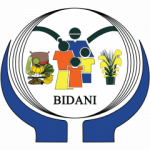Last June 22, 2022 the University of the Philippines Los Baños – Barangay Integrated Development Approach for Nutrition Improvement (UPLB-BIDANI), as the BIDANI Network Program coordinator, conducted a technical assistance entitled, “How to Conduct an Orientation Meeting on BIDANI Strategies to Partner Local Government Units,” to its partner State Universities and Colleges (SUCs).
All seven of the BIDANI Network Program implementing SUCs participated in the activity, namely: Batangas State University, Bicol University, Central Luzon State University, Central Mindanao University, Isabela State University, University of the Philippines Visayas, and Visayas State University. Overall, the training gathered 49 individuals in charge of implementing the BIDANI Strategies – Barangay Integrated Development Approach, Barangay Management Information System, and Participative Nutrition enhancement Approach – in their respective locales.
The technical backstopping activity was conducted in light of the recently concluded national and local elections where newly elected, second-, and third-termer local officials will be assuming their positions this coming July 01, 2022. The BIDANI Network Program recognizes the changes in leadership among its partner LGUs every three years require sustained introduction and re-introduction of its (BIDANI) activities and strategies to the LGUs in order to get the LGUs’ continued support. In this regard, the UPLB-BIDANI, as the network coordinator, deemed it necessary to provide this technical assistance to its partner SUCs – to re-orient them on the operational strategy and discuss the need to continue or gain the support of the incumbent local leaders to implement the BIDANI Innovative Strategies.
The resource person of the half-day activity was Mr. Arnold T. Abuyog, the Assistant Program Leader and Barangay Integrated Development Approach Coordinator of the BIDANI Network Program. Mr. Abuyog started his discussion explaining Social Mobilization as the first step in BIDANI’s operation and integration in the community. According to Mr. Abuyog, Social Mobilization is the process of generating and sustaining the active and coordinated participation of all sectors in the adoption, institutionalization, and promotion of BIDANI as a strategy and in mainstreaming nutrition-in-development. It (social mobilization) determines the ways forward of the BIDANI Strategy in the SUCs’ catchment areas. This may result in whether the BIDANI Strategy will be adopted into the LGUs or not.
Furthermore, as a network of SUCs, the conduct of orientation meeting (OM), as part of Social Mobilization, highlights the role of BIDANI’s network of SUCs as the LGUs partner in planning, management, monitoring and evaluation of the BIDANI Strategies. Through the OM, the SUCs will be able to discuss to the local officials its services in support to the LGUs work; this may include production of integrated development plans, database updates to support the LGUs’ development planning, nutrition interventions, and other capacity building activities.
The technical backstopping activity provided an opportunity for the network of SUCs to discuss the importance of conducting the OM with incumbent officials, the initial coordination activities to be done and the topics to be communicated. The activity also paved the way for the sharing of best practices among the SUCs, as well as issues and concerns regarding Social Mobilization and ways forward..
This activity of the BIDANI Network Program shows its continued commitment to its partner LGUs geared towards nutrition-in-development.
King Niño B. Manzano

